I participated The Nobel Prize Round Table "Fact and Fiction - The Future of Democracy" in Brussels
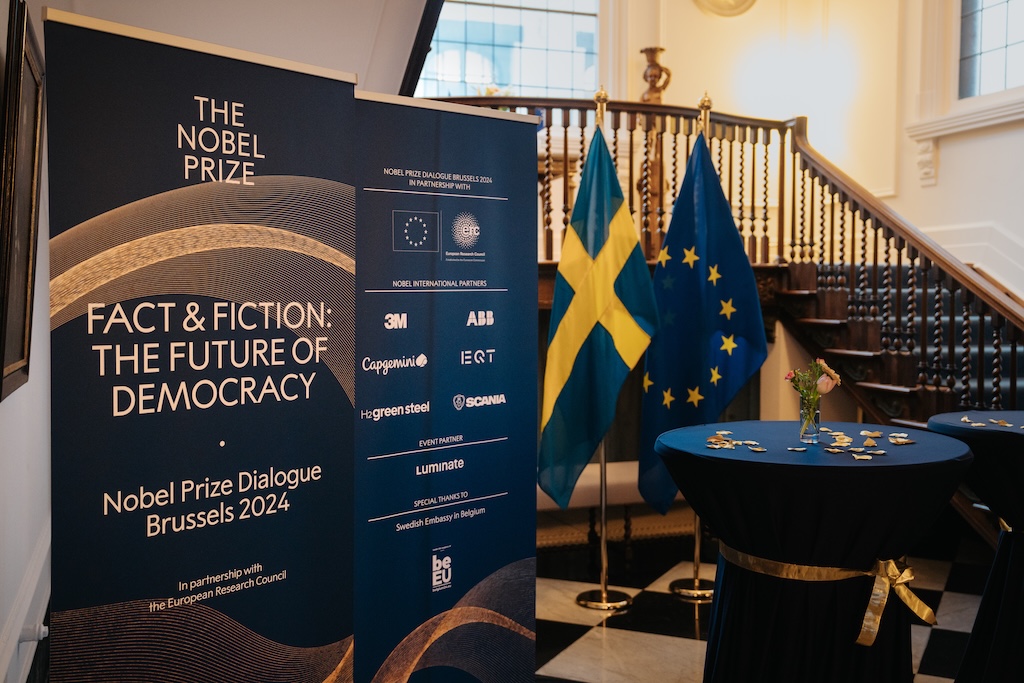
From March 3 till 6, 2024, I had the honor of participating in the Nobel Prize Dialogue Brussels, themed “Fact & Fiction: The Future of Democracy.” Held at Bozar in Brussels, this event brought together thought leaders, Nobel laureates, and global experts to discuss democracy’s evolving challenges and opportunities, particularly in the age of AI. Here, I share my reflections on this inspiring experience.
The Roundtable: Critical Dialogues on Democracy and AI
The Dialogue began with an exclusive roundtable discussion, held under Chatham House rules to foster open, transformative dialogue. Moderated by Anna Sjöström Douagi, The Vice President of Strategic Initiatives at the Nobel Foundation, this 75-minute session convened 23 participants, including Nobel laureates like Paul Nurse, Bernard Feringa and Oleksandra Matviichuk, and industry leaders such as DeepMind’s Director, Nicklas Lundblad. We explored key questions about the implications of AI for elections, media, and citizen engagement.
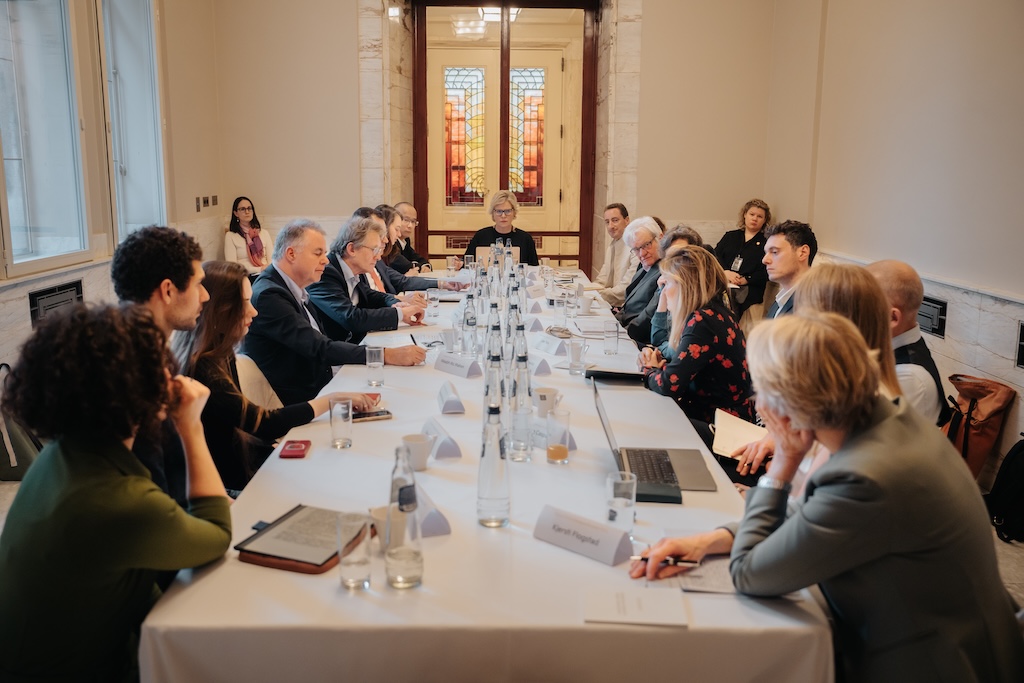
I was privileged to contribute to discussions on how AI could both enhance and undermine democratic systems. My perspective focused on governance frameworks to mitigate risks, such as disinformation, while leveraging AI for transparency and inclusivity. Paul Nurse’s assertion that “critical thinking is a cornerstone of democracy” resonated deeply, reinforcing the importance of nurturing these skills in the digital age.
Reception at the Swedish Residence
Before the event, I attended a reception hosted by H.E. Annika Molin Hellgren at the Swedish Residence in Brussels. This gathering set the tone for the following day, offering an opportunity to connect with fellow participants in an informal setting. Conversations ranged from the future of AI governance to the global challenges of misinformation. It was a reminder of the importance of shared values and collaboration in addressing these complex issues.
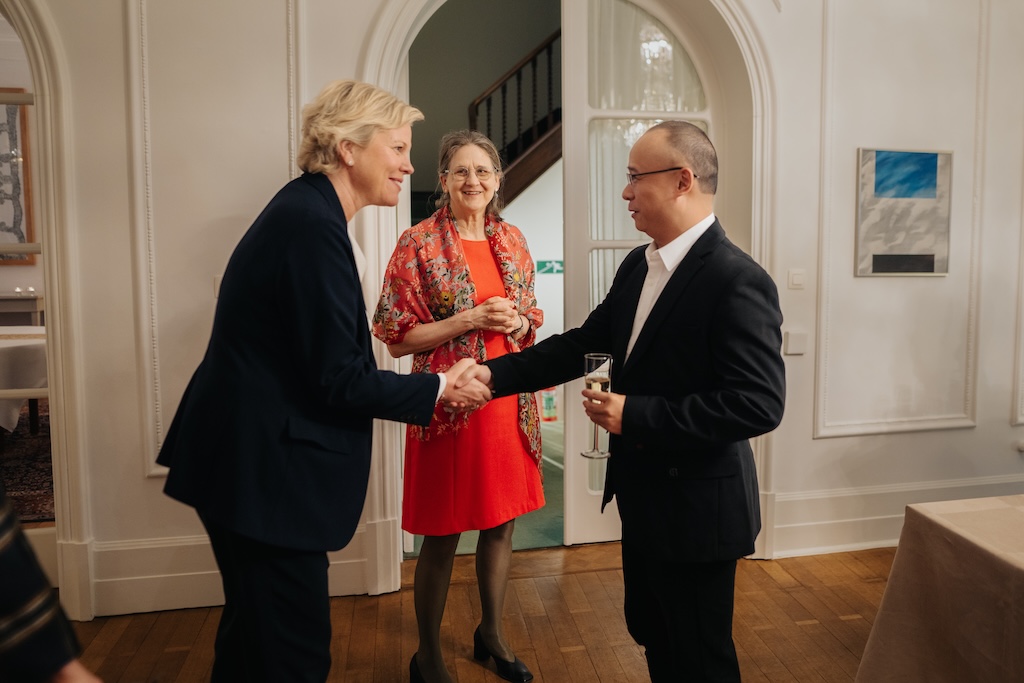
The Broader Dialogue: Democracy in Transition
The main event in Bozar’s Henry Le Boeuf Hall was attended by over 1,800 people and live-streamed globally. Topics included the disruptive effects of social media, the role of quality journalism, and emerging narratives for healthy societies. For me, the highlight was the emphasis on fostering trust – a critical pillar of democracy. Speakers repeatedly stressed the role of science, independent media, and inclusive governance in achieving this goal.
The evening dialogue featured compelling talks from Nobel laureates, including Bernard Feringa and Paul Nurse (right in the photo below), who spoke passionately about the role of storytelling in fostering critical thinking. His statement, “The struggle in writing a good essay is essential to critical thinking,” underlined the value of intellectual rigor in safeguarding democracy. These reflections were particularly poignant as we considered the intersection of fact and fiction in shaping public narratives.
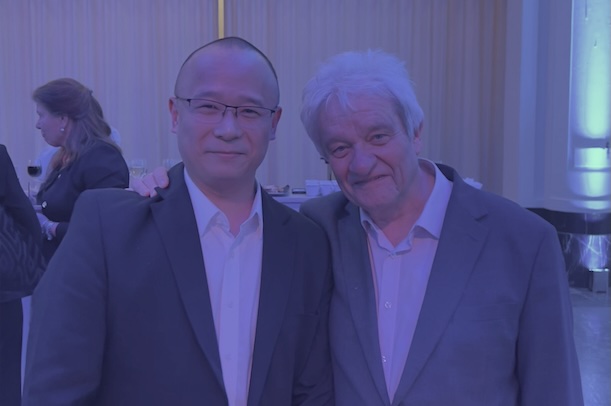
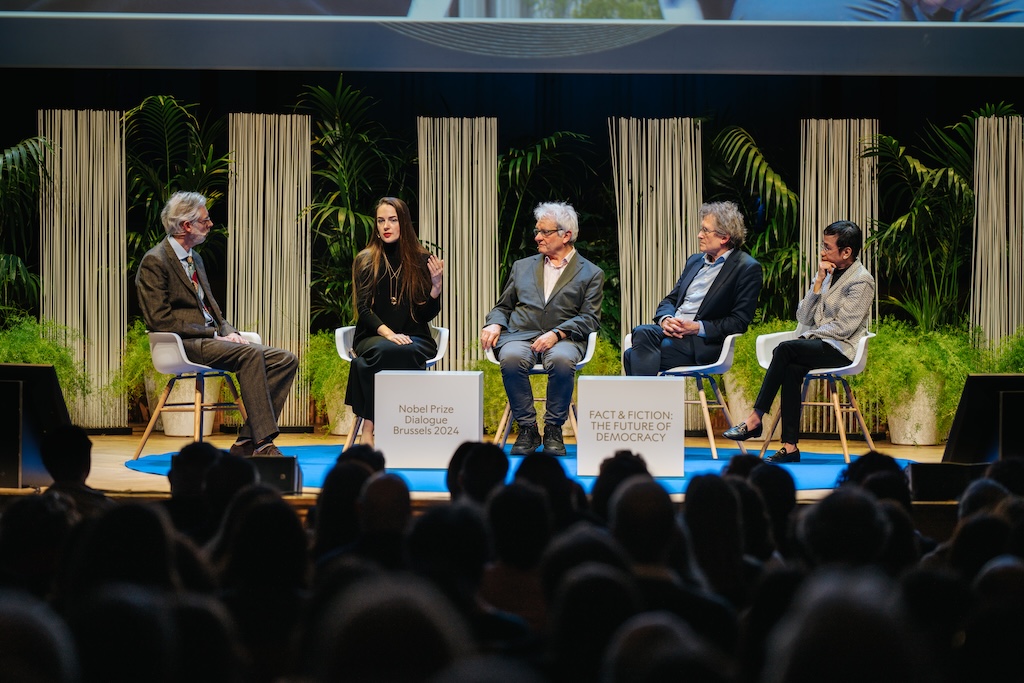
Closing Thoughts
Participating in this dialogue reaffirmed my belief in the transformative power of interdisciplinary collaboration. As the lines between fact and fiction blur in an AI-driven world, it is imperative that we prioritize critical thinking, ethical AI governance, and inclusive narratives. I am deeply grateful to Nobel Prize Outreach for creating a platform to explore these urgent issues.
The Nobel Prize Dialogue reminded us that while challenges abound, so do opportunities to strengthen democratic principles through innovation and collaboration.